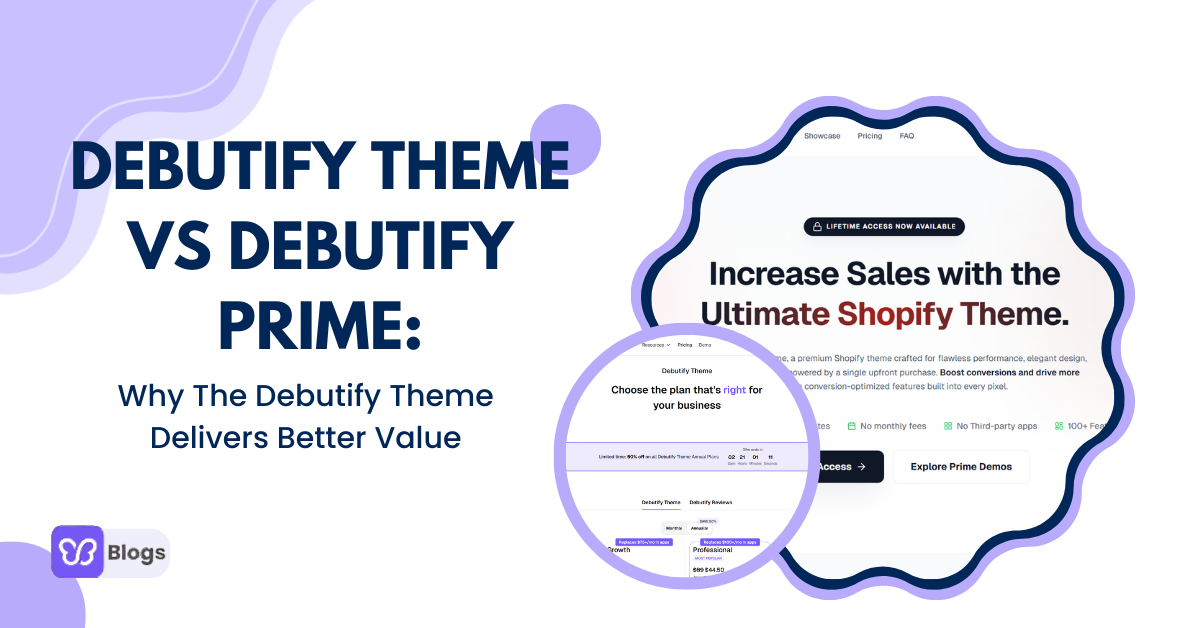Keywords form the basis of any successful marketing campaign. You can not boost your organic traffic and drive conversions without knowing what your target audience is searching for and how often.
Keywords are basically key terms or phrases that a user types in the search box to find information online. Keyword research for SEO is essential because it leads people to the search results and ultimately to the website where they find what they're looking for.
The process, however, isn't as simple as it may sound. If you're just starting out and unsure how to get this step right, we have got you covered.
In this article, we're going to talk about some of our tried-and-tested keyword research tips you can implement now to boost your organic traffic.
What Is Keyword Research?
Simply put, keyword research is the process of finding different words and phrases your potential customers use when searching for products and services.
It is a multi-step process that starts with discovering the right keyword ideas and then analyzing and prioritizing them according to your needs.
Importance Of Keyword Research For SEO
There is nothing worse than creating content that nobody is looking for in search engines. That is where keyword research for SEO comes in.
Research suggests that more than 90.63% of websites do not get organic traffic as they do not pay heed to get their keyword research and SEO right.
Keyword research also supports all your other SEO efforts for your ecommerce store, including email outreach, content marketing, etc.
SEO keyword research also allows you to know your niche and audience better. The process gives you in-depth insights into your potential customer's needs and wants.
So if you want to make your online store shine in front of search engines, keyword research can be your safest bid.
Types Of SEO Keywords
SEO keywords commonly fall into 3-categories.
Short-tail keywords: Popularly known as generic keywords, short-tail SEO keywords cover broad search terms. For instance, fashion accessories
Mid-tail keywords: Mid-tail keywords further specify the choices and usually consist of 2-3 words. For instance, stylish fashion accessories
Long-tail keywords: Long-tail keywords, as their name suggests, comprise 3-4 words. Because of their descriptive nature, these keywords best specify the search intent of the user
The Process Of Keyword Research
The keyword research process combines all types of SEO keywords to help you drive organic traffic and conversions.
Before we dive into the details of the best keyword research practices, let's have a quick look at how this process works.
How to Find Keyword Research Ideas?
The process begins by finding the keywords your target audience is interested in.
Let's suppose you run a digital marketing agency online. What keywords do you think your potential audience might be interested in?
These are called 'seed keywords', and they help you define your niche and spot your competitors. Noticeably, you can't target seed keywords to rank your pages on SERPs.
You can only use these words as input to keyword research tools, and they will show you a list of keyword ideas based on your seed keywords.
How To Analyze Keywords?
There are many keyword research tools available online that you can use to discover trending keyword ideas. But how do you know which keywords are best?
To analyze keywords, you have to use different SEO metrics to narrow down options and choose keywords that are likely to give the best possible result.
Here are three keyword-related SEO metrics you can use to separate the wheat from the chaff.
Search Volume
Search volume is the metric that indicates the average number of times a specific keyword gets searched in a month.
Since each tool calculates its metric differently, the search volume results vary from tool to tool.
Clicks
Sure, many people use Google and other search engines to find their desired information online. But that doesn't necessarily mean they will all click on the search results and visit suggested websites.
'Clicks' is the metric you need to calculate to know how many people have actually clicked on the top-ranking websites.
Surprisingly, some keywords, despite having a massive search volume, only get a few clicks in a month. That's mainly because Google is already providing answers in the search results for users looking for information.
Keyword Difficulty
The keyword difficulty criteria work differently for everyone. Generally, SEO specialists measure this metric manually.
For some experts, DR and search intent are more critical factors. On the other hand, others believe the number and quality of backlinks and branding outperform all other aspects.
It is, however, better to go after high KD keywords as soon as possible as you'll have multiple backlinks to rank.
How To Target Keywords?
After discovering keyword ideas and analyzing them, the next step is to target those keywords. For this, you have to create different website pages along with content for every keyword you have on your list.
This process involves two steps:
Identify The Primary Topic
Let's suppose your final list contains these keywords:
What is Dalgona coffee
how to make Dalgona coffee
how to make Dalgona coffee with whipped cream
How to make sugar-free Dalgona coffee
Dalgona coffee recipe
When you enter these keywords/phrases in a search box, you'll observe Google considers these keywords part of the same topic. That means you don't have to create pages for each keyword separately, and you can target them all on a single page.
Identify The Search Intent
Not all keywords are created alike. The keywords you're targeting for blog posts don't necessarily go well with your product pages. The key here is to identify the search intent behind each keyword.
For example, you can target those keywords for blogs that highlight specific procedures and tutorials (how to make Dalgona coffee without sugar?)
Similarly, you can create product pages for the keywords that reflect the buying intent of the user (the best coffee grinder to make Dalgona coffee).
How To Prioritize Keywords?
Keyword prioritization depends on your business goals and objectives. Some businesses prioritize keywords based on the search traffic potential. Others give priority to the factors like competition, availability of content, and ranking factors.
Regardless of your goals, it is critical to know that keyword prioritization is not the last step of your keyword research process. This is something you need to consider at all the stages of keyword research we have discussed so far.
Top 10 Keyword Research Ideas For Improving Your SEO
1. Know Your Niche
The first and most crucial keyword research tip is to know about your niche and target audience.
Without knowing who your potential customers and competitors are, you cannot create a keyword research strategy that converts.
To research your niche, all you need to do is open Google and start typing keywords you think are associated with your niche. Carefully examine search results listed on the first page of Google. Examine the type of content they're posting, their posting frequency, their website structure, and more.
You can also subscribe to their newsletter to know more about what they share with their customers.
What's most critical to understand is you cannot target highly competitive keywords if your site is new. So instead of chasing those keywords, try to include options that can get your site ranked on the first page of Google.
2. Get More Specific By Writing Down Keyword Ideas
Unless you have hired an SEO specialist to handle keyword research for your brand, it is critical to write everything down on paper for future reference.
Brainstorm ideas and note them down. Think from the buyer's perspective and imagine what search terms or phrases they might enter in the search box.
This is an ongoing process, and you must look for trending ideas from time to time to keep your topic bucket updated and in line with recent market trends.
3. Use Tools To Find High-Performing Keywords
The best keyword research tip to find plenty of keyword opportunities is to use keyword research tools online. There are many paid and free options available.
The good thing about these tools is that they can save you lots of time. When you invest in a paid tool, you get ideas you wouldn't find elsewhere.
That goes without saying that you get a competitive advantage over those brands that do not use any keyword research tool to find keyword opportunities.
With keyword research tools, you can either conduct a search based on the seed keyword or competitor's keywords.
4. Analyze The Search Intent Of Each Keyword
Finding seed words is an essential part of your online SEO campaign. But what's more important is to monitor the search intent behind each seed keyword to know what works best for your business.
For example, 'healthy heart food' is quite specific, but 'healthy food' is a vague term.
So you see, the search intent of some keywords is obvious, but for other terms, you have to put in your time and effort to research what your target audience might be interested in.
As mentioned above, you can type keywords in Google to figure out the search intent of your keywords.
5. Start Looking For Long-Tail Keywords
The biggest challenge SEO experts face is most of their researched seed keywords are usually highly competitive. That means, when a user types those keywords in Google, they see a list of brands already targeting those keywords.
Because of the high competition, it becomes challenging for startups and newcomers to attract traffic as there are already many big names targeting the same keywords as theirs.
Imagine you and Nike targeting the same 'Sports Shoes' keyword. You got that, right?
There are two ways you can find long-tail keywords for your business. You can either find long-tail keywords manually or by examining high DA websites like Wikipedia to see what users are looking for most of the time.
6. Conduct Competitor Research
Spying on your competitors is the best keyword research tip to boost your organic traffic.
No, we're not talking about the type of content they're producing to lure your target audience. It's time to see which specific keywords they're targeting and ranking for.
SEMRush comes with an Organic Research feature that enables you to figure out the keywords your competitors are targeting.
You can even use filters to refine your research and get more precise results regarding monthly search volume and more.
7. Narrow Down Your Options
Obviously, you can't target every keyword listed on your list. So, the next step is to revise your options and narrow them down to 25-30 best keywords you can target for sales copies, landing pages, blogs, etc.
You can make this decision based on the search intent, keyword difficulty, and search volume of your chosen keywords.
8. Convert Keywords Into Page Titles
Congratulations! You have successfully completed the keyword research process for your website.
It's time for some final implementation. Convert keywords into page titles by typing the keyword in Google and monitoring the first few options available on Google’s first page.
Do not copy-paste titles already available on the first page. Remember, Google is smarter than you think. Create a unique title based on your keywords. You can also include one or two Power words to make your title look more appealing.
9. Leverage Semantically Related Keywords
Semantically related keywords, also known as LSI keywords, are words that have the same meaning as your target keywords.
By including these keywords in your copy, you make your content look more relevant for search engines.
10. Keep Searching For Trending Keywords
Keyword research is a never-ending process. While Google doesn't change its decision too often, it's better to update your keyword strategies from time to time and look for the most trending SEO keywords to help your site stay on the first page of Google.




